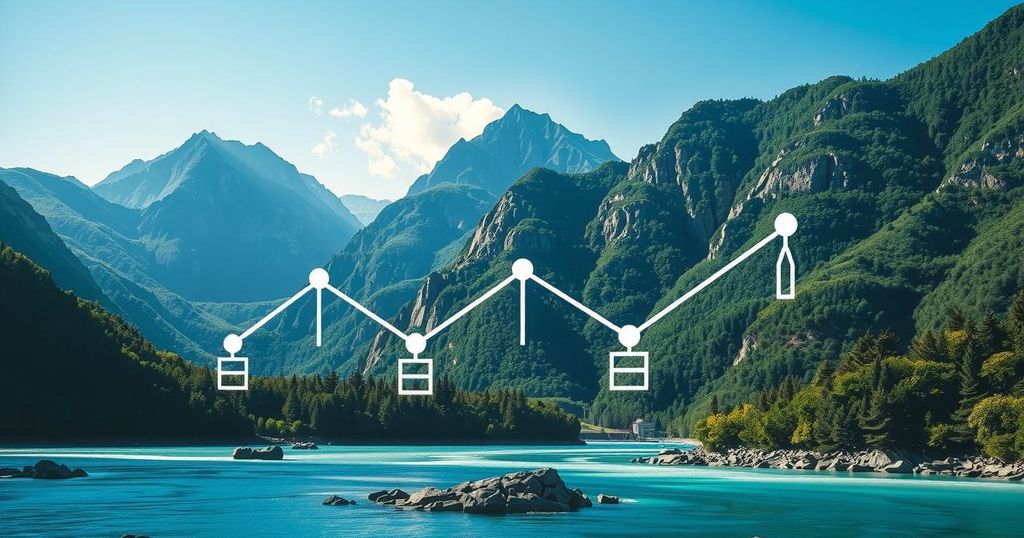The Democratic Republic of Congo has approached the U.S. for exclusive access to its critical minerals in exchange for security assistance against a Rwandan-backed rebellion. The proposal includes discussions of a partnership that would enhance U.S. interests in energy transition minerals, while also addressing concerns about governance and military assistance. The negotiations demonstrate Congo’s desire to reduce reliance on China.
The Democratic Republic of Congo (DRC) has extended an offer to the United States, seeking exclusive access to its abundant critical minerals and infrastructure projects in return for security assistance as it confronts a rebellion largely supported by Rwanda. This appeal underscores President Felix Tshisekedi’s increasing desperation amidst the ongoing conflict in the eastern regions of the country, where a rebel group threatens his government.
In a letter addressed to U.S. Secretary of State Marco Rubio, the Congolese government requested an urgent meeting between Presidents Tshisekedi and Donald Trump. The aim is to discuss a potential partnership that would facilitate American companies’ access to valuable minerals crucial for energy transition, including cobalt, lithium, tantalum, and uranium.
An Africa-U.S. business group, advocating for Congo’s interests, highlighted the critical nature of these resources to both American industrial competitiveness and national security. They stated, “As the world’s largest supplier of cobalt and a major producer of lithium, tantalum, and uranium, the DRC’s resources are integral to U.S. industrial competitiveness and national security,” emphasizing a unique opportunity for the U.S. to secure a reliable supply chain.
The U.S. State Department indicated that the Trump administration is “open to discussing partnerships in this sector,” suggesting potential benefits for both economies. However, concerns regarding corruption, environmental degradation, and labor issues have previously hindered U.S. firms’ interest in Congo’s mineral wealth during the Biden administration.
Negotiations for such a partnership may be complex; experts note that the Trump administration may find mobilizing U.S. investors challenging. Joshua Walker of the Congo Research Group remarked that any agreement could involve extensive renegotiations of existing mining contracts and questioned U.S. commitment to countering Rwandan aggression in the region.
The Congolese proposal included offering U.S. companies operational control and exclusive rights for mineral extraction and export. It also encompassed development plans for a deep-water port on Congo’s Atlantic coast and the establishment of a joint strategic mineral stockpile.
In exchange for these partnerships, the U.S. would provide military training, equipment, and direct assistance to the Congolese armed forces, allowing access to military bases strategically located to safeguard mineral resources. This important correspondence was officially registered under the Foreign Agents Registration Act by lobbyist Aaron Poynton on behalf of Pierre Kanda Kalambayi, a prominent Congolese senator.
The Democratic Republic of Congo is actively courting the United States for a strategic partnership centered on its vast mineral resources in exchange for security assistance amid ongoing conflict. This initiative, reflecting desperation as Rwanda supports rebel forces, aims to shift dependency from China and solidify economic ties with the U.S. However, achieving such a partnership would likely involve navigating intricate negotiations and addressing past concerns about governance and human rights.
Original Source: financialpost.com






